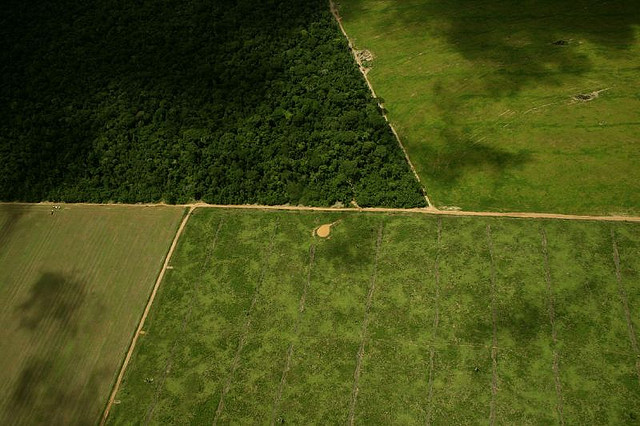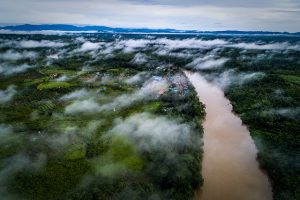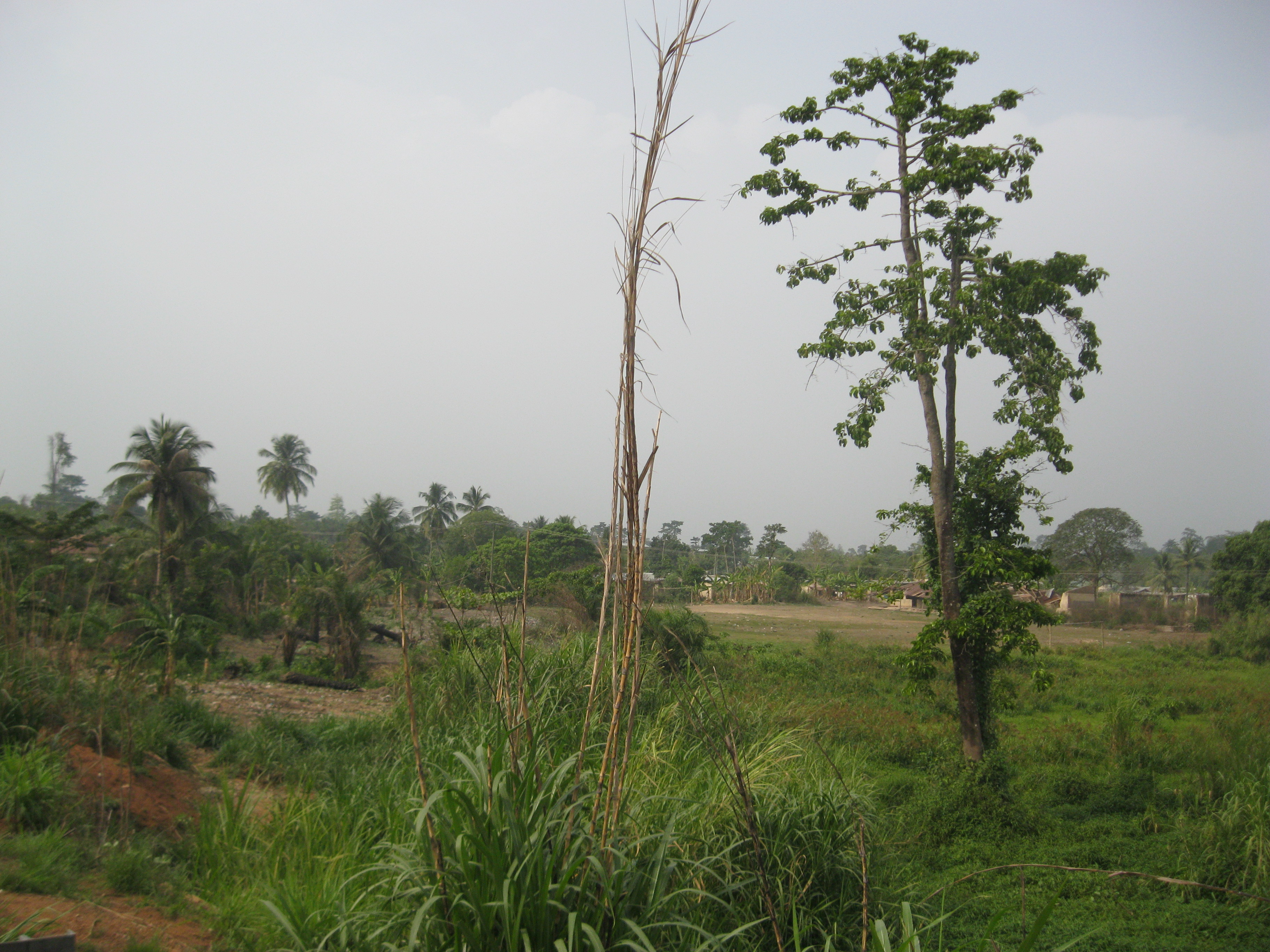Putting a Halt to Tropical Forest Loss is a Matter of Human Survival
Putting a Halt to Tropical Forest Loss is a Matter of Human Survival
(Vienna, 9 September 2019) Never before, it seems, have forests received as much public attention as at present. Sadly, the reasons for this are most distressing: forest fires of unprecedented dimensions all over the globe; a growing lack of resistance of trees to stressors such as drought, pests and diseases; and the uncontrolled exploitation of forests in environmentally sensitive areas.

FTA and IUFRO highlight cooperation at Global Landscapes Forum
NOTE: This text is reblogged from a blog coauthored by Vincent Gitz (FTA) and Alexander Buck (IUFRO) about the Rainfall Recycling as a Landscape Function: Connecting SDGs 6, 13 and 15 discussion forum at GLF2017: http://foreststreesagroforestry.org/fta-and-iufro-highlight-cooperation-at-global-landscapes-forum/
**********************************************

Clouds pass over homes on the banks of the Belayan River in East Kalimantan, Indonesia. Photo by Nanang Sujana/CIFOR
The CGIAR Research Program on Forests, Trees and Agroforestry (FTA) and the International Union of Forest Research Organizations (IUFRO) are strengthening their collaboration to increase understanding and promote the role and value of forests and trees in landscapes.
At the recent Global Landscapes Forum (GLF) in Germany, FTA, IUFRO and the Swedish International Agricultural Network Initiative (SIANI) organized a Discussion Forum titled Rainfall Recycling as a Landscape Function: Connecting SDGs 6, 13 and 15. Read more…
IUFRO Spotlight #8 – Combatting Climate Change Comprehensively
Combatting Climate Change Comprehensively
By Ben Chikamai (Kenya Forestry Research Institute)
IUFRO Board Member, Kenya

Degraded forest landscape in the Offinso District, Ghana. The original high forest cover has been modified through over-exploitation of wood resources, agriculture activities, and establishment of human settlements. (Photo by Ernest Foli, FORNESSA)
African forest policy makers and governments could benefit by using a recent study as a template to help bring climate change adaptation into the mainstream of national development strategies.
The study, conducted in two forest-dependent areas in Africa, emphasizes cross-sectoral planning – recognizing and incorporating interacting priorities, such as agriculture, health, forestry, land-use planning, water resources, energy, education, etc. – as a key element in implementing any effective climate change adaptation strategy.
Forests can play an important role in achieving climate change adaptation goals in Africa. But sustainable forest management decisions alone can’t accomplish that. Policy decisions – for forests as well as other resource areas – must complement one another. At present, impacts from some of those other sectors may actually be threatening the forests.
There are a number of pressures on Africa’s forests – agricultural expansion and forest over-use among them. Reducing non-climatic pressures, in a logical, prioritized manner, can help reduce the vulnerability of forest ecosystems. That’s crucial because many people in Africa are highly dependent on forest goods and services. Those people are, and will continue to be, particularly vulnerable to the impacts of climate change. Improving the capability of forest dependent communities to adapt to a changing climate will reduce that vulnerability.
The study: Enhancing Adaptation of Forests and People in Africa – Development of Pilot Cases for Selected Forest Ecosystems in Ghana and Malawi, examined forest issues related to climate change in selected areas of those countries. The authors, E.G. Foli and S. Makungwa, worked in those specific areas because they represent typical examples of the ecological and socio-economic situation prevalent in Sub-Saharan Africa, so the findings could also be applied to countries in West, Central, Southern, and parts of East, Africa.
Among other findings, the study confirmed a general trend of increasing mean annual temperatures and a decline in mean annual rainfall. In the Ghana pilot area this has resulted in forest loss due to wildfire; a decline in the availability of non-timber forest products; reductions in agricultural crop yields; and declining potable water supplies and the associated risk of water-borne diseases. In the Lake Chilwa area of Malawi, in addition to declining potable water supply and its associated disease risks, there has also been poor productivity on tree farms; loss of indigenous trees in communal areas, riverbanks and surrounding forest reserves; a decline in agricultural productivity; and declining fish catch from the lake.
While the study noted how changing climatic conditions can adversely affect livelihoods, health and food security in those communities, it also noted examples of locally initiated adaptation strategies developed to mitigate the impacts of the changing climate. By compiling existing information, including the needs of stakeholders in the various inter-related resource areas, consulting with local communities and assessing and evaluating each project site, enhanced and concrete adaptation measures for the pilot areas were developed.
Then, a priority setting exercise was carried out to identify appropriate and relevant adaptation strategies and activities that would best serve the communities. Similar techniques could be used across a much wider area, the authors say, but that will require political will, financial commitment, and an integrated multi-sectoral – even trans-national – approach. It’s a challenge, they agree, but one that must be faced.
The full study can be found at: http://www.fornis.net/content/enhancing-adaptation-forests-and-people-africa-development-pilot-cases-selected-forest-ecosy
